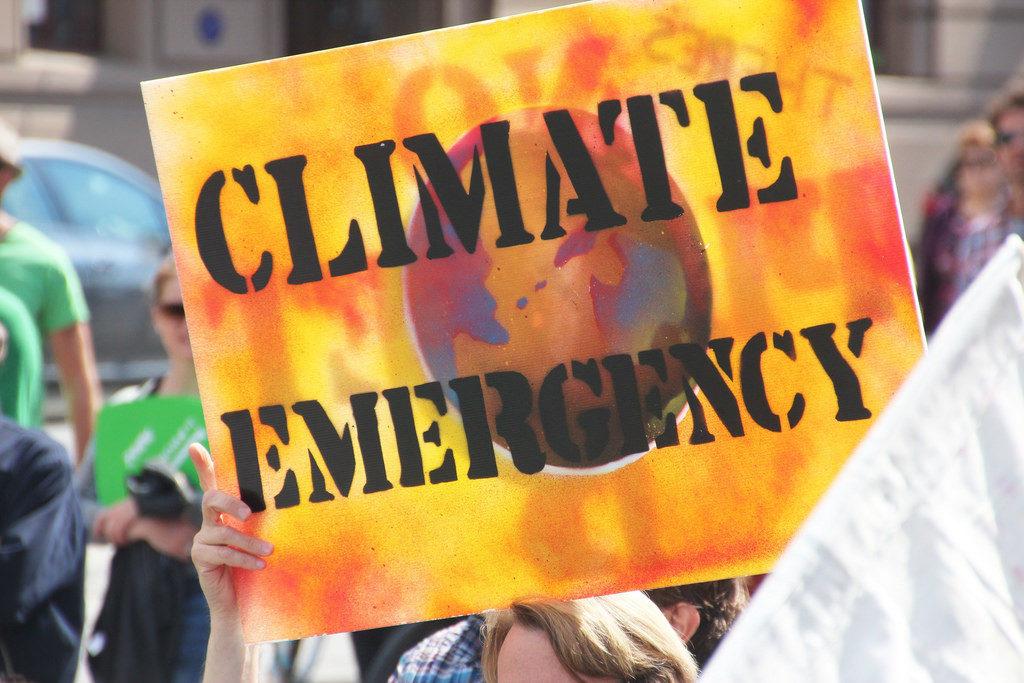Editorial: We should not be entertaining the climate change debate
September 14, 2017
In the midst of Hurricane Irma wreaking havoc in Florida and just days after Hurricane Harvey hit Texas, CNN had an interview with Environmental Protection Agency (EPA) Administrator Scott Pruitt in which the reporter brought up climate change and whether or not it was a cause of the hurricanes. Pruitt answered, “To discuss the cause of effect of these storms, there’s the… place (and time) to do that, it’s not now.”
As EPA Administrator, Pruitt has called for a rolling back of regulations regarding greenhouse gases and just months ago announced that the EPA was in the process of launching a televised debate about climate change. To have answered CNN’s question with a call to view climate change not as a “hoax,” as President Donald J. Trump has referred to it in the past, but as a legitimate cause of Hurricanes Harvey and Irma, would have gone against Trump’s administration and his own actions.
Whether Pruitt believes in climate change or not, what he said to CNN was right. The debate over whether or not climate change has happened within the scientific community and has been resolved. Now is not the time or place to discuss whether or not climate change played a role in the devastation of these storms because that time has passed.
The need for open and vibrant debate should be an important part of our culture as a university community when it is constructive. Academic spaces are places that foster opinions and encourage debate where it is productive and beneficial to those involved. The freedom to differ in opinion and to vocally express those differences should absolutely be protected when it inspires the progression of thought. However, the “debate” in question stunts the progression of thought concerning man-made climate change.
The implications of ignoring climate change and its consequences make it irresponsible for academic spaces and forums of public discourse to encourage the climate change debate. The scientific community has a consensus that climate change is happening and caused by human activity. Ninety-seven percent or more of actively publishing climate scientists agree on this fact. It is no longer necessary to decide whether or not this is happening. We may not see the effects of climate change until the future, but the opportunity to avoid its worst damage is in the present.
Many of this country’s future leaders and professionals are part of the academic sphere where they are engaging in debates on a range of topics. Universities should be the places that are training these academics to become informed, active members a larger society. They need to be prepared to step into the world with the accurate knowledge about how their physical environment is changing so that they can take the right steps in preserving the planet.
Remaining idle as climate change leads to record breaking hurricanes, wildfires, unexpected earthquakes and other disasters around the globe forces society to be reactive rather than proactive. Academic institutions are often at the forefront of public discourse, and by opting to remain idle they miss an opportunity to be at the forefront of change—something that every university should want to be—and become complicit in misinforming the public about climate change. Academics need to be doing more to make it obvious to the public that climate change is happening and has very real consequences.
Academics should not entertain public forums like Scott Pruitt’s proposed televised climate change debate, nor should they serve as talking heads for news outlets that debate climate change. Near silence on the topic is no longer acceptable either. Discussions on what to do about climate change should be vocal and are part of the academic mission to further thought.
Northeastern University should do its part to encourage proactive and constructive climate change discussions. Faculty should host interdisciplinary conversations on campus about how to best handle the problems climate change will throw society’s way. Northeastern should also be working as an institution to decrease its carbon footprint so that is not just working in the theoretical.
Scott Pruitt argues that it is insensitive to the victims of Hurricane Harvey and Hurricane Irma to focus on discussions of climate change rather than hurricane relief. For those families who have had their cities destroyed, the next step is to pick up and rebuild until they can regain a sense of normalcy. But for people who will continue to have their homes in areas along expanding hurricane paths, the danger of unchecked climate change is increasingly eminent.
If we stay in a stagnant state of debating back and forth what is already known to be true instead of using our platforms to work toward constructive change, we do a disservice to the people who will be most at risk.






